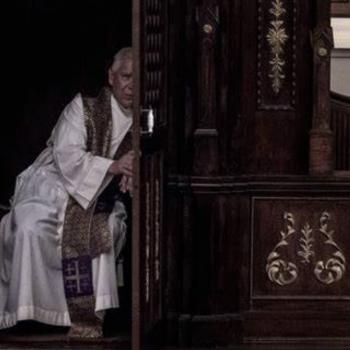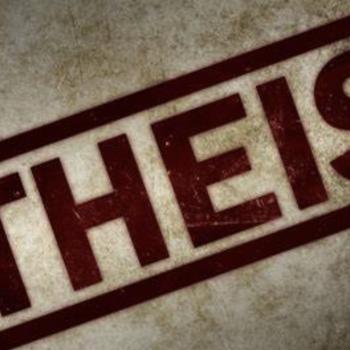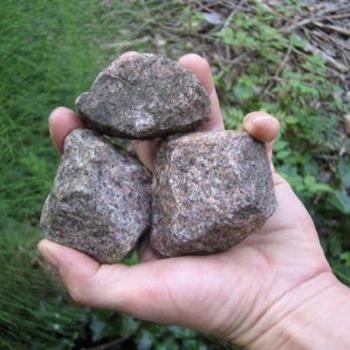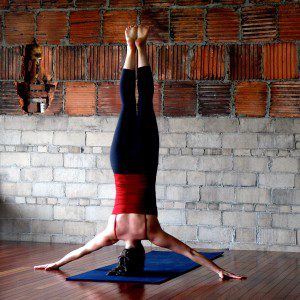
“Do you recognize that as self-harm?” the therapist asks me at the tail end of my extended hour and half visit. “This tendency you have adopted to ratchet up the stress level and the expectations of the things you enjoy most in life until they hurt you?”
I tumble that around in my head for the days and weeks after as I plunge into the darkness of grief, filling my lungs with its inky wetness. It is the anniversary of my son’s death, and I can’t remember how to breathe.
Inevitably, my thoughts wander toward what God might think of me.
Can I still call myself a believer if I’m certain that heaven is real but wonder why hell seems so much closer most days? Can I still be a good Christian girl if I love Jesus and hate his ways? Can I be Christ-like if the scars on my soul flesh are self-inflicted?
I ask a friend in a Facebook message if she thinks self-harm is a mortal sin. I want to know what I need to do to get right again. She suggests I consult the Catechism.
I love my Catholic faith with all its rules and guidelines, definitions and delineations. Really, I do. Maybe too much. Tell me the rule. Give me the prescription for holiness. Don’t give me freedom and liberty to discern and figure it out for myself. Dear God, please don’t ask me to explore the grey areas.
But this time, I don’t look at the catechism. I shut off the lights, let the sun go down, block out the moon. Leave me to the darkness, I think, and I’ll be okay. My eyes have adjusted. I’ve learned to see here. These are the witching hours of my life.
But I don’t sleep. Instead, I think that this Church that has baptized me with life-giving waters and named me priest, prophet and king and charged me with the work of an apostle, has mostly left me on my own to figure out what it means to embody those roles as a woman. How can I make priestess, prophetess and queen mean light and lovely things? The words, in my mind, connote darkness. They arrive in dark velvet robes.
Church, I think, do not call my genius “feminine” if you resent my dappling in these dark mysteries of bloody birth and shadowy death and calling them the hard and unholy names they merit.
**
I go to yoga with my head full of all this dialogue–nevermind that it’s perhaps gravely evil for a good Catholic girl to go to yoga in the first place. I take account of my ever too rapid respiration and my tendency to inhale on the contraction rather than the expansion, to overextend on the reaching and not lean back for enough into the resting posture. I’m sure there is something to learn here about that whole self-harm issue but my mind blocks the path because it is just about six in the evening and the sky’s familiar grey wraps around my throat and drips down my back in sticky beads of fear and anxiety.
I want to believe that God’s wisdom will clarify the un-inked parts of the rule book for me. But mostly, I walk around waiting for someone to tell me that I can be all upside down about all these things of faith and hope and mercy and grace and sin and virtue and still make it to heaven. I want someone to say, you can push this hard against the light, or wander in this darkness, and still get to heaven at the end of it all.
If I can have that, maybe I can learn to breathe in the right order again.
That night in yoga, we concentrate on elevations, and I do a lot of head stands. The yoga teacher says they are important because they are the very few seconds of our lifetimes when the pressure is off of our backbones. In a headstand, our backs don’t have to hold us up. We are given the opportunity to fully rest.
A funny thing happens when my backbone rests and my head is on the floor. From my upside down ways, the grey dusk looks very much like a pink dawn. I exhale fully as I descend, and rock back into the resting position inhaling slowly. This is the healthy way to breathe in an upside down world. My body is remembering.
And my spirit, too, begins to see, through the milkiness of half-written rules, that the space with the bones of my religion is where faith gets a chance to expand and breathe. The questions that are pressure and pain and ache in my daily walk become healthy expansion of my holiness when I turn my heart upside down and look at heaven and earth from a new perspective.
**
I don’t get in line for confession the next day. But I do email my therapist and tell her she is right and we have work to do. I ask her, has she has ever done a headstand and suddenly found herself right side up again?
That night, I wear a white night gown to bed, and sleep.
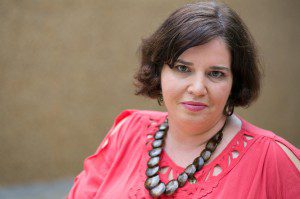 Colleen C. Mitchell is the author of the forthcoming book Who Does He Say You Are? Women Transformed by Christ in the Gospels (Servant, 2016). She’s wife to Greg and mother to five amazing sons here on earth and five babies in heaven. Colleen and Greg are foreign missionaries in Costa Rica, where they run the St. Francis Emmaus Center, a ministry that welcomes indigenous mothers into their home to access medical care. She works out what it means to trust Jesus, grieve well, and live a raw faith at her blog Blessed Are the Feet.
Colleen C. Mitchell is the author of the forthcoming book Who Does He Say You Are? Women Transformed by Christ in the Gospels (Servant, 2016). She’s wife to Greg and mother to five amazing sons here on earth and five babies in heaven. Colleen and Greg are foreign missionaries in Costa Rica, where they run the St. Francis Emmaus Center, a ministry that welcomes indigenous mothers into their home to access medical care. She works out what it means to trust Jesus, grieve well, and live a raw faith at her blog Blessed Are the Feet.




